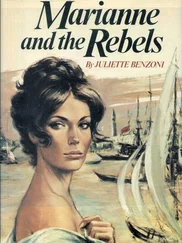“What?”
The oxyacetylene lamp flared up. The cobbler limped over to the lamp and carefully turned the flame down.
“As people do in conversations. Young Master Lajos, if I may so refer to him, being a fellow soldier on the front and a comrade in arms, has made a significant sacrifice for the homeland. Soldiers who have served at the front look each other up when opportunity affords. We talk of a good many things at such times. Young Master Lajos also made mention of the fact that young Master Tibor was worried. I must not neglect to mention that apart from losing an arm in that great bloodbath, young Master Lajos made a spiritual sacrifice too. He doesn’t remember very much of what he has said. And when he says something, pretty soon after he doesn’t want to know anything about it. In the course of conversation he mentioned that it was not absolutely impossible that there had been some deterioration in the noble lady’s condition. We must prepare ourselves, he said. That’s how I know.”
Ábel knew nothing of this for certain. It could be that the one-armed invalid had imagined it all. The elder of the Prockauer boys was given to strange behavior at times. Once he had avoided and laughed at his younger brother’s circle of friends and their amusements: now he was forever seeking them out. Little by little they included him in everything. He was the first to make the acquaintance of the actor. Ábel thought about it: they had known the actor by sight for a long time, but the one-armed Lajos was the first to introduce himself and get him to meet the others. No doubt he had been his loquacious self.
He talked with the cobbler about Tibor’s anxieties, anxieties that resulted in him betraying their common secret. It would be good to know how far Lajos had taken the cobbler into his confidence. The cobbler was inclined to talk, admittedly in his own peculiar way, though much depended on whom he was addressing. Ernõ told them his father was not a frequenter of bars and that he kept his set speeches about the new order between rich and poor, and on the collapse and rebuilding of the world, for a selected audience.
He had never doubted that the cobbler was not quite right in the head, but the manner in which he performed his speeches was so calm and disciplined that, eye to eye, he did not feel he was talking to a madman any more than when listening to certain views of adults generally. In its proper context, in its own way, everything he said was sober and to the point. When he thought about it he couldn’t quite free himself of the uncomfortable feeling that there was something attractive in the cobbler’s obsession, something he couldn’t just skip over, get on with his life, and ignore. The cobbler fascinated him, but not like Ernõ did, or like Tibor, not even like the actor—nothing like them, quite the contrary in fact, but that contrary was irresistible to him. From time to time he felt obliged to seek the cobbler out.
The cobbler was Ernõ’s father, and Ernõ was one of the gang. Indeed, Ernõ was one of the pillars of the gang. Each time they launched out on something afterwards it seemed to him that the silent and secretive Ernõ had somehow initiated it. He hadn’t known, of course, that the cobbler had actually hanged men at the front. Ábel was taken aback but felt no horror. He looked at the cobbler, at those hands that had furthered the process of “cleansing,” and neither hated nor shrank from them. It was beyond his comprehension: his mind could not grasp it. The whole thing had happened too quickly: childhood, the hothouse, Father’s sessions with the violin, then that something else that other people called the war, but which changed nothing in his life, and suddenly there he was, standing among adults, burdened with guilt and lies, hatching life or death schemes with the gang whose members a year, a day, or one hour earlier were as much children as he had been, living in a different, gentler, tamer world, knowing nothing of danger. They didn’t have time to bother with what the adults were doing. Their fathers went away, their elder brothers were called up, but these obscure and, as far as they were concerned, far from terrible but boring and everyday occurrences, indeed anything anyone did in those faraway places, were of no interest to them. He couldn’t begin to cope with excess knowledge, such as the knowledge that Ernõ’s father had hanged people. That was something to do with fathers and elder brothers. One heard of other things like that. The world he had known had smashed and he felt he was walking on its shards. It might be that in a few weeks or a few months he too would have to hang people. If Mr. Zakarka regarded this as a form of cleansing, that was his business. People cleanse themselves as best they can.
The cobbler often employed the term “cleansing.” Ábel found it attractive but couldn’t understand what exactly he meant by it. The cobbler quoted the Bible. Ábel liked his turn of phrase. His manner of speech affected him like a kind of seductive singing, a singing that was off-key and full of missed notes, yet the voice was alive and full. It had something of the wayside preacher in it. At one point he had referred to himself as “a minor prophet” and lowered his eyes.
Sometimes he had the feeling that the cobbler knew everything about them. He knew some surprising things about the town. He rarely left his miserable room, yet it was as though he had invisible emissaries: with a word here and a word there he let slip that he knew what was going on and kept his eyes on everything. He hardly ever spoke when his son was present. When Ernõ entered their poor quarters the cobbler would give a deep bow and fall silent. He would speak respectfully of his son even in his presence but he would never address him directly. Ábel watched him with amazement. Each time he came he had to restrain himself from pouring his heart out to him. Sometimes, just now in fact, as he was walking down the street, he felt an irresistible temptation to call on the cobbler and tell him everything. Perhaps I should ask him to turn the light off, he thought. It would be easier in the dark. It was only a few months since he had made the acquaintance of Ernõ’s father, up till then he had known nothing of him. Thinking it over, he didn’t think he was mad. The cobbler seemed to be of no particular age. He felt closer to him than he did any ordinary adult. It was as if the cobbler, like the gang, was living in that transitional state between childhood and adulthood. The cobbler was neither adult nor child. Like them he seemed to hover in a world between good and evil. He felt the weight of this knowledge as intensely as he would the burden of a terrible secret. He was frightened of the cobbler, though sometimes it felt as though he were the only man who could help him. He was like an adult to look at, but Ábel’s sense of him was of someone in disguise, a child wearing a false beard.
He could never decide whether the cobbler was friend or foe. He employed broad terms: The gentry, he said. The poor. Only sinners may be cleansed. At such times his voice rang like a true preacher’s. His frail, flat tones filled the narrow room.
“As I said,” he ended without any change of pace, “my son Ernõ is in the coffeehouse with the young gentlemen. Custom now openly permits him to frequent places reserved for adult gentlemen.”
He bowed and sat back down on his chair and picked up his work as though there was no one else present. Ábel stood beside him and watched him as he leaned, bent-backed, over the sole and pricked a series of tiny holes at the perimeter of the leather strip with his auger. Ábel had come to tell him everything, to talk about Tibor and the actor, to ask him for help in the face of the danger that was threatening them all. Now that he was staring at the cobbler’s wire-wig hair his nerve failed him again. Whatever is said out loud has life. He quietly and timidly took his leave, though the cobbler was no longer paying attention to him. When he reached the steps the cobbler spoke. Astonished, Ábel turned round and saw the cobbler was laughing.
Читать дальше












